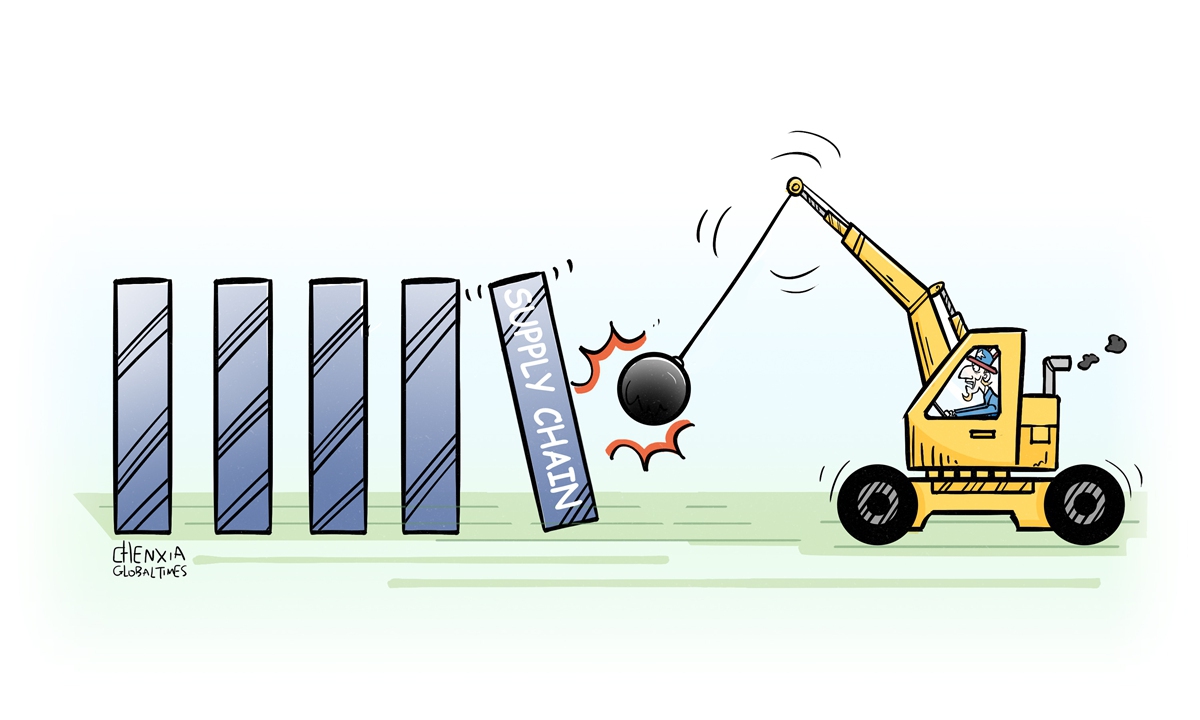GT Voice: US intervention in Congo deal highlights need for China to secure mineral cooperation

Illustration: Chen Xia/GT
The US appears to be increasing its intervention in African countries to restrict the operations of Chinese mining companies, highlighting the need for China to secure a stable supply chain for critical minerals through enhanced collaboration with alternative mineral suppliers.
The US has just intervened in the sale of a Congolese copper mine to a Chinese company by encouraging the Democratic Republic of Congo's state-owned miner Gécamines to review the sale, the Financial Times reported over the weekend, citing people familiar with the matter.
While it remains unclear how the deal will fare, the incident serves as yet another illustration of the US leveraging its influence to hinder the international expansion of Chinese companies in the critical minerals sector.
As global demand for electric cars and high-tech products has grown, key mineral resources critical to these industries have become part of the US' global strategic landscape. By forming "small circles" and roping in its allies and countries rich in mineral resources, the US aims to build critical mineral supply chains based on ideological values to ensure a dominant position in the global supply chain of important products and raw materials.
Against this backdrop, Congo's abundant mineral resources have attracted the attention of many major countries. The nation's mining regulations and resource development not only affect its own economic development, but also carry intricate global economic and geopolitical ramifications.
Indeed, according to the FT report, Washington already attempted to introduce potential parties for the copper mine in Congo, but potential US buyers finally pulled out after considering a bid. This behavior of sabotaging the deal to prevent others from obtaining what it cannot get highlights the bullying and selfishness of the US in international resource competition. Its actions not only squeeze the overseas development of Chinese companies but also infringe upon Congo's right to independent development.
In fact, this is precisely the approach the US has always taken toward Africa. Its overarching strategy on the continent has consistently revolved around the primary goal of upholding its global strategic hegemony. By attempting to influence the autonomous economic decision-making processes of developing nations, the US has sought to shape an international order to suit its own interests.
Moreover, the US intervention in the Congo copper mining deal serves as a troubling indication that it may become more aggressive in curbing the global expansion of Chinese companies.
In the face of competition and pressure from the US for key mineral resources, the necessity for China to enhance international cooperation and establish diverse and stable mineral supply chains has increased. With a huge manufacturing sector and a rapidly growing economy, China has a significant demand for these mineral resources. Yet, external dependence on these resources is quite high. China depends on imports for over 70 percent of its mineral resources, including lithium, oil, copper and aluminum, and for over 90 percent of certain rare metals like cobalt, according to media reports.
In light of these circumstances, it is imperative for China to prioritize enhancing cooperation with other mineral resource suppliers and establishing an international resource coordination mechanism. By doing so, China can not only broaden its resource access but also mitigate the effects of market fluctuations and political uncertainties. Such a mechanism would not just be limited to resource-rich developing nations but can also cover Western countries. Through fostering mutually beneficial partnerships, countries can create a more stable and diverse global supply chain for mineral resources to avoid unnecessary disruption.
In addition, in the process of seeking global development and making overseas investments, China should pay more attention to the sustainable development of projects and their contribution to local society. For instance, when it comes to mining cooperation with Congo, Chinese companies should not only focus on the acquisition of resources, but also prioritize projects that will genuinely enhance the economic growth and social advancement of Congo.